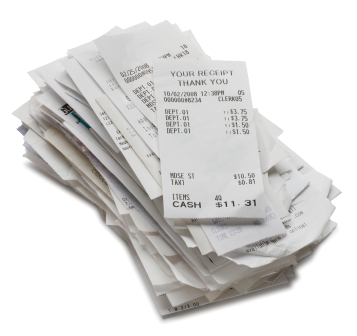Processing Employee Expense Reports
by Sharon
(Calgary, AB)

I have a client with over 5 employees. Once a month they submit a expense report with all receipts attached. It then goes to the Owner for approval. Then to me to process.
The previous Bookkeeper would do a general journal entry for each employee and total all expenses, breakout the GST and post those numbers in the accounting system.
Would you agree each expense should be posted and not lumped together as one total for a proper audit trail?
Also how would you recommend setting this up in the system? Would you create a liability account for each employee or would you set up each employee as a vedor and post each expense in the payable journal versus the general journal?

Hi Sharon,
My preference, as there are only 5 employees, is to setup "Credit Card Type" accounts in QuickBooks for each employee rather than an Accounts Payable Account. I would create a parent account for employees, then individual employees as sub accounts.
The reason I like to do this is I like to use the reconciliation capabilities of the "credit card type" of account.
Entering the expense report by the totals for each expense column is not incorrect. Entering summaries is a common practice. For example, one common use of this is entering a daily, weekly or monthly POS summary into QuickBooks.
For something like expense reports, I just don't like having to go back and look up paperwork if/when there are questions, so I tend to enter individual items. Of course volume and dollar amounts (Are they material? How frequently are they submitted?) are taken into consideration when deciding which way to go.
Once a month for 5 employees … without knowing the whole picture for the business, I'd probably enter the reports line by line and not lump sum totals by expense category.
I'll post on Facebook get feedback from other bookkeepers.
P.S. I would like to remind you there is a difference between information and advice. The general information provided in this post or on my site should not be construed as advice. You should not act or rely on this information without engaging professional advice specific to your situation prior to using this site content for any reason whatsoever.
Comments for Processing Employee Expense Reports
|
||
|
||
|
||